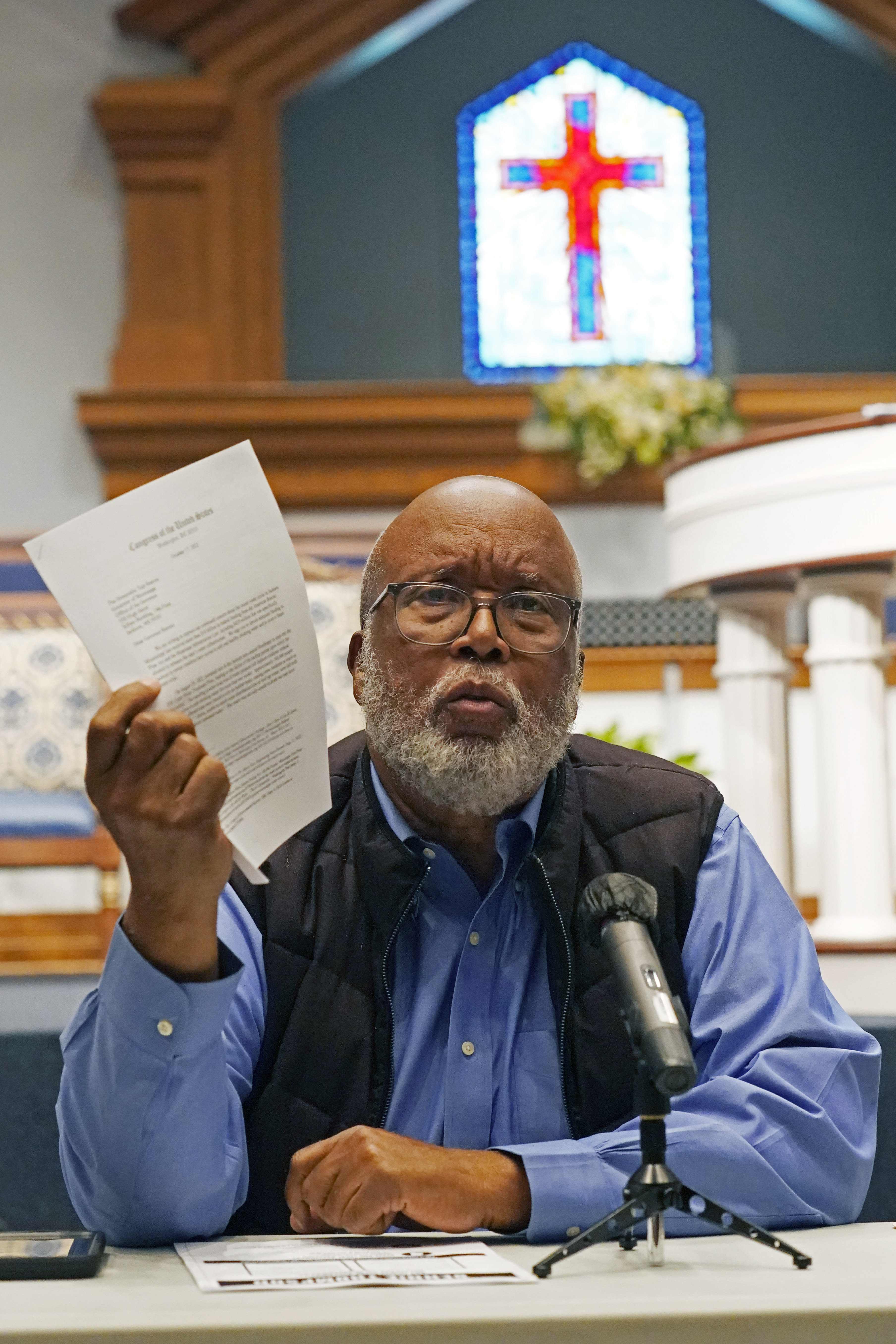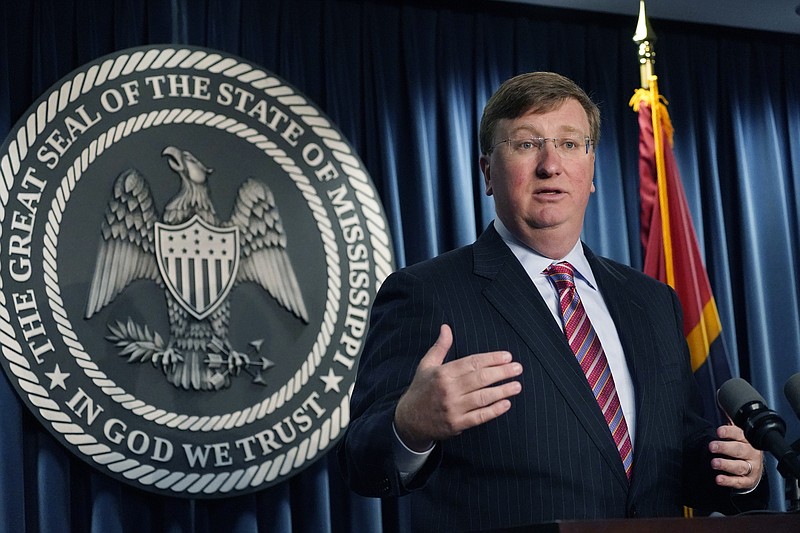JACKSON, Miss. -- Mississippi Gov. Tate Reeves released his response Monday to a congressional investigation of the crisis that left 150,000 people in the state's capital without running water for several days this summer.
Reeves said Jackson has received a disproportionate amount of funding for its water system based on the city's size. He also said local officials have only themselves to blame for the water woes.
"[M]y administration is deeply committed to ensuring that all federal funds received by Mississippi for drinking water systems upgrades have been in the past and will continue to be in the future made available and distributed among Mississippi's more than 1,100 water systems on an objective and race-neutral basis," Republican Reeves said in a letter dated Oct. 31 and addressed to Reps. Bennie Thompson of Mississippi and Carolyn Maloney of New York.
The two Democrats sent Reeves an Oct. 17 letter requesting details of where Mississippi sent money from the American Rescue Plan Act and the Bipartisan Infrastructure Law, including "the racial demographics and population sizes of each" community that received aid. They also requested information on whether Jackson, which is 80% Black, has faced "burdensome hurdles" to receive additional federal funds.
Comparing census data against the recipients of state water loans, Reeves wrote "there is no factual basis whatsoever to suggest that there has been an 'underinvestment' in the city or that it has received disproportionately less than any other area of the state." In 2021, Jackson accounted for 68% of all loans dispersed, Reeves wrote.
Mississippi received about $1.8 billion in American Rescue Plan money and the Legislature put $750 million of that toward competitive grants for Mississippi's water systems. Officials announced last week that they approved Jackson's request for $35.6 million in federal funds to help pay for seven water and sewer projects.
Thompson and Maloney said in a joint statement Monday recent federal aid to Jackson can be traced to more federal involvement.
"The Governor's response to our letter is a clear acknowledgment that the City of Jackson, and its water systems, are in desperate need of resources to supply clear water to the city's residents," Thompson and Maloney said. "Democrats have passed infrastructure funding for this exact purpose."
Reeves wrote that Jackson tax collections increased from 2003-20, but numbers cited by the governor did not account for the decreased buying power because of inflation.
Reeves also wrote that Jackson sales tax collections increased during those years, but he did not mention that part of the increase was because Jackson approved an additional 1% sales tax in 2014 to help pay for infrastructure improvements.
While the EPA said current samples indicate Jackson's water quality meets federal standards, testing continues and legal action against the city is still a possibility.
Through a spokesperson, Jackson Mayor Chokwe Antar Lumumba declined to comment on the governor's letter Monday.
 FILE - U.S. Rep. Bennie Thompson, D-Miss., displays a letter to Mississippi Gov. Tate Reeves that expresses concern over what he believes is the inadequate federal funding from the American Rescue Plan Act and the Bipartisan Infrastructure Law to address the failing water system in Mississippi's majority-Black capital city, Jackson, Miss., on Monday, Oct. 24, 2022, at a town hall meeting hosted by the NAACP. Reeves responded Monday, Nov. 7, to a congressional probe into the crisis that left 150,000 people in the state's capital city without running water for several days in late summer. (AP Photo/Rogelio V. Solis, File)
FILE - U.S. Rep. Bennie Thompson, D-Miss., displays a letter to Mississippi Gov. Tate Reeves that expresses concern over what he believes is the inadequate federal funding from the American Rescue Plan Act and the Bipartisan Infrastructure Law to address the failing water system in Mississippi's majority-Black capital city, Jackson, Miss., on Monday, Oct. 24, 2022, at a town hall meeting hosted by the NAACP. Reeves responded Monday, Nov. 7, to a congressional probe into the crisis that left 150,000 people in the state's capital city without running water for several days in late summer. (AP Photo/Rogelio V. Solis, File)